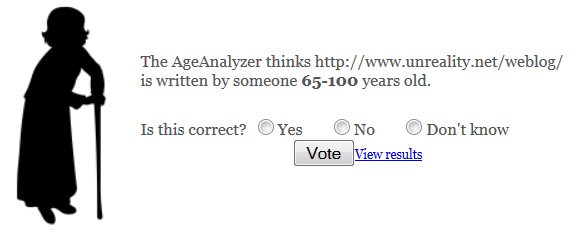
This afternoon, I went to my writing group and wrote this in the time allotted to us:
“If you’re going to raise a demon,†said Howard, “then you raise a demon. You do it right and by the book. This is no time for half measures.â€
Daisy nodded, and mmhmmed, although she wasn’t really listening, and moreover she didn’t care if Howard knew it. This was her show as high priestess; she’d earned that title for whatever it was worth, and she wasn’t prepared to cede her authority to Howard just because he’d spent a few more lonely nights in the council library than anyone else. If the council had been looking to reward bookishness, then they would have given the book to Howard, now wouldn’t they, instead of handing the litany of rites and arcana over to her. Daisy respected his knowledge, and lord knew she’d have to lean on it a little when the time actually came, but for now Howard could take all his talk of half measures and demon raising and shove it up his pompous ass.
“Have we heard back from Cairo yet?†she asked him absently. The dig was a good three hour’s drive over land from the capital, she knew, but by now they should have heard something, anything, even rumor. What was that archaeologist’s name again — not the lead, but the one the council had secreted on to the team three months after their arrival in-country? Was it Winsome? Winstone? Daisy could ask Howard, but god, he would love that, wouldn’t he, her not knowing some key piece of information. And Cairo was critical to the success of the ritual, even more than any garden-variety demon raising that might need to be undertaken stateside, and Howard would have no hesitation reminding her about that over and over. It was just the woman’s name Daisy couldn’t remember — it was definitely something with a W, she was sure of that — but she wasn’t about to admit to any ignorance here and now.
“Nothing,†Howard said, “which as I’m sure you know is unusual. If they’ve run into some kind of difficulty at the tomb — “
“It’s too early for contingency plans,†said Daisy. “And you worry too much. Last we heard, everything was going just peachy.â€
“That was before the dreamer awoke,†said Howard. “They’ve been transcribing new prophecy for the better part of an hour.â€
“The dreamer,†Daisy snorted. “You old guys put way too much faith into the things that man says. If I smoked a half pound of hashish before bed I’d have some weird visions too. What was that one about all of the women with arms slicked to the elbow with oil and rice and tiny cubes of diced vegetable matter? It’s crazy. Show me a single ’dream’ of his that has led to anything tangible.â€
“He found the old one’s tomb,†Howard said.
“That’s debatable,†said Daisy. “It’s a lot more likely the old one’s the one who found him.â€
It’s probably not too difficult to figure out one of the writing prompts, shoehorned-in as it is there. (I picked it, so I have no one but myself to blame.)
After that, I went with the group to see Ender’s Game.
Before seeing it, my feelings about the movie were pretty complex, owing mostly to Card’s odious politics and extreme right-wing views. I thought about buying a ticket to a different movie, or boycotting it altogether. Although that would only be symbolic at best — John Scalzi rightly points out it would be hard to monetarily hurt Card at this point with one, or even millions, less ticket sales — there was a certain appeal to it. But I wasn’t really looking to make a symbolic gesture, and I think I can see the movie without it reading as an endorsement of Card’s backward views on homosexuality.
Then people on Twitter started talking about the book itself, and how it was bad, with its own breed of noxious politics. While less of a screed than Card’s more recent political writing, they argued that the book itself was worthy of derision and boycott.
I haven’t read the book since I was about Ender Wiggin’s age myself. I was tempted to try to find my old copy — I think it might be buried in a box in the basement — that temptation came only sometime this morning. (I mean, I did have that extra hour, but it was not to be.) From my memory of the book, though, I think those people are wrong, if only because the terrible things that are done to, and ultimately by, Wiggin in the book are not necessarily presented as a good thing. And — spoiler warning — he spends most of Speaker for the Dead, the sequel, trying to atone for the brutal genocide he’s ultimately (albeit somewhat unwittingly) responsible for in the first book. I’ve read Speaker (and Xenocide) more recently, and Card the man, with his baggage of views and politics, doesn’t really rear its ugly head.
The book’s not perfect, and I think maybe it does deserve a re-read from me at some point to better unpack those imperfections, but I remember liking it a lot, even if I was only about twelve at the time.
So my feelings were complex. A couple of days ago, on Twitter, I wrote: I will/won’t go see Ender’s Game because it doesn’t/does reflect the author’s original intent. Yeah, I think that about covers it.
After seeing the movie…well, it was okay.



